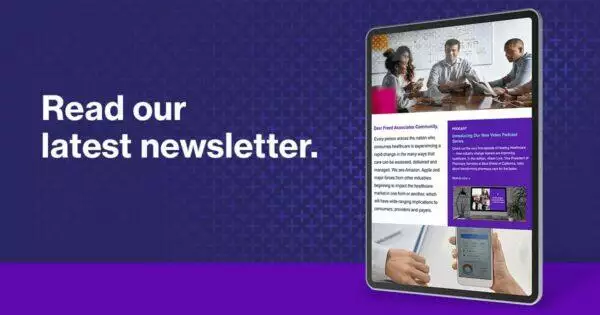Toward Better Knowledge Management
A leading health care organization sought to define its current and desired state of knowledge management, and engaged Freed Associates to lead this effort and develop a knowledge management roadmap and implementation plan to guide the organization forward.

Problem to Solve
We know that the importance of gathering and managing health care data dates back to at least the ancient Egyptians. Nearly 4,000 years ago, Egyptian medics recorded medical cases on papyrus.
Fast forward to today, and the need for knowledge management in health care is greater than ever, particularly amid exponentially increasing amounts of data, regulations, and clinical and non-clinical information. Recognized as a distinct part of business strategy in health care for more than 25 years, knowledge management helps health care organizations of all types and sizes more effectively manage internally and externally generated knowledge, enhance care and customer/patient service, foster innovation and achieve operational excellence.
Before embarking on a wholesale upgrade of its knowledge management capabilities, a leading health care organization sought to define its current and desired state of knowledge management. The organization engaged Freed Associates (Freed) to lead this effort, and develop a knowledge management roadmap and implementation plan to guide the organization forward.
Strategy and Goals
Because many in health care still consider knowledge management a “nice to do” and not a “need to do,” organizations seeking to enhance their knowledge management practices must choose strong, committed and respected leadership to champion these efforts. Otherwise, well-intentioned knowledge management work will wither on the vine, and employees will turn their attention elsewhere.
Partnering with an engaged executive leadership team, Freed led an assessment and analysis of the health care organization’s knowledge management capabilities and most critical needs. These client leaders paved the way for key departments to support and enhance this exploratory effort.
In collaboration with a core client team, as well as engaging with key stakeholders from clinical and non-clinical departments across the organization, Freed provided strategic guidance and subject matter expertise to develop a defined vision for the organization’s knowledge management program and establish its need, scope and scale. Gathering input about the current state of knowledge management supported the development of the future state design which had the following goals:
- Develop a culture of active knowledge-sharing and information
- Optimize access to key information
- Enhance information-leveraging to improve client services
- Support problem resolution by sharing experiences and learnings
- Minimize the loss of knowledge and improve knowledge transfer
- Contribute to more efficient work processes that reduce the amount of errors and re-work
A key learning from these department-specific collaborations was the need to achieve “quick win” solutions that supported efforts to build an organizational culture of knowledge-sharing. A “quick win” was defined as a rapid effort that supported the organization’s overall knowledge management goals while promoting ongoing engagement with stakeholders. For example, one such quick win was having all departments add the following four questions at the end of all staff meetings, to build a culture of knowledge-sharing:
- What information needs to be shared?
- Who should share this information?
- With whom should this information be shared?
- By when will the information be shared?
Results
This collaboration achieved all of the client’s desired results, starting with a vision schematic and statement to guide the direction for the organization’s knowledge management journey, and culminating with a future state framework, an action plan and a set of key performance indicators to monitor implementation. Specifically, the following was accomplished:
- Tied the knowledge management vision with the organization’s strategic alignment objectives
- Shared and “socialized” the vision with all pertinent key stakeholders to obtain buy-in and support
- Identified the future-state drivers for each component of the knowledge management approach to support long-term program development
- Developed actionable tools to support implementation and ongoing maintenance
In addition to recommending quick wins and defining a roadmap forward for knowledge management success, Freed also identified improvement opportunities for the client. For example, developing internal positions to support ongoing knowledge management, both in leadership and technology, as well as implementing infrastructure and technological resources.
Conclusion
An initiative as far-reaching and important as a knowledge management program implementation or upgrade cannot be undertaken without full leadership support, department and staff buy-in and engagement, and a deliberate, informed assessment of an organization’s knowledge management accomplishments and needs. Otherwise, an organization might as well write its knowledge management policies down on papyrus; here today, dust tomorrow.


